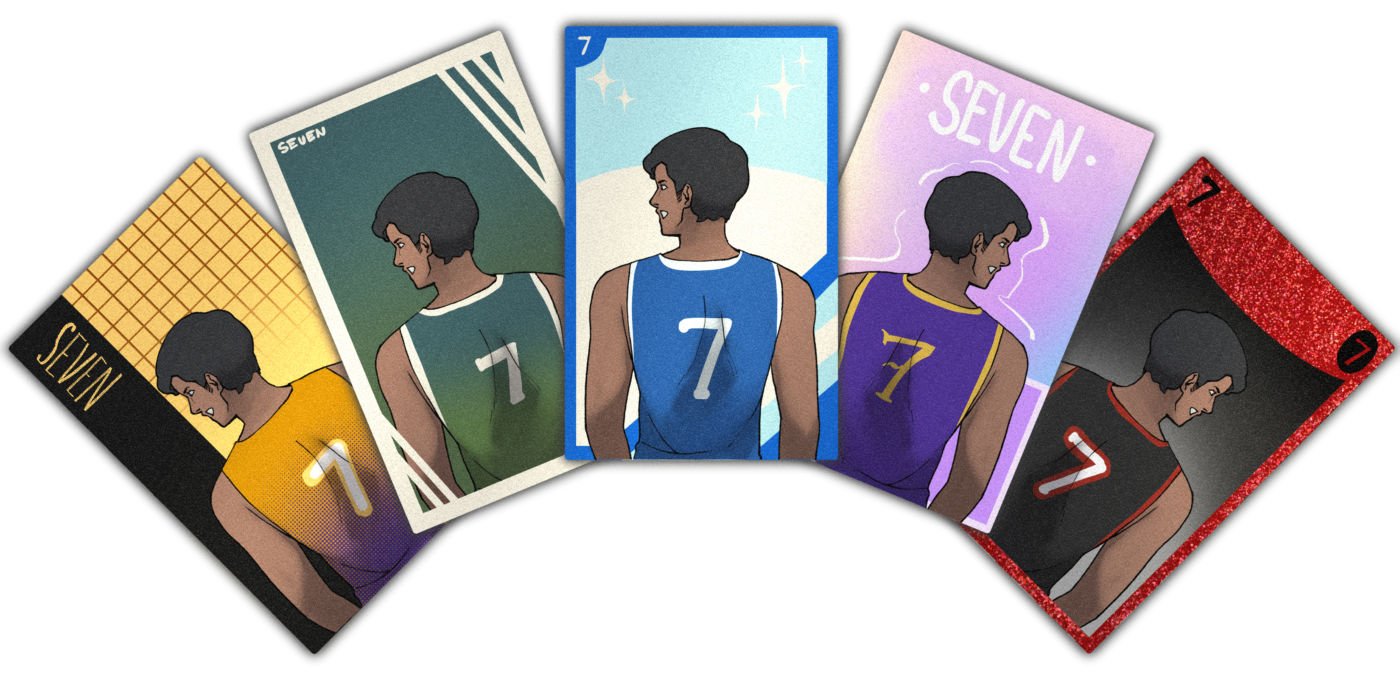THE UNIVERSITY Athletic Association of the Philippines (UAAP) is a stage where opportunity and controversy equally thrive. Seen most especially in televised events such as basketball, volleyball, and football, the landscape of collegiate sports has drastically changed over the years as the competition, stakes, and publicity all reach new heights.
After basketball standout Mason Amos drew the ire of the Blue Eagle faithful for his sudden departure to Ateneo’s rival school, the long-term development of the UAAP is once again under heated discussion within the sporting community. This instance, out of the many high-profile transfers in recent seasons, calls attention to the league’s eligibility rules that have been debated on earlier this year.
Currently, the UAAP imposes a one-year residency rule for all transferees, but its Board of Trustees has recently made a push to implement a two-year deduction on top of this rule. Undoubtedly, excessive offseason shakeups indeed present alarming concerns, tainting the league’s integrity, sportsmanship, and amateurism.
However, the two-year deduction is unnecessary and unjustifiable, given that these penalties were created in response to increasing poaching allegations, not with the young athletes’ development and best interests in mind.
Pingoy rule: Where it all began
History repeats itself as talks of the amendment call up the root of the eligibility rule’s inception in 2013. After working his way to become a high school basketball standout, two-time UAAP Juniors Most Valuable Player Jerie Pingoy turned out as a highly-coveted player during his time at the Far Eastern University.
His decision to move to Ateneo for his collegiate career influenced the establishment of the “Pingoy Rule,” which instigated the two-year residency requirement for transferees.
In an effort to regulate such residency requirements and contraband student-athlete commercialization, Senator Pia Cayetano legislated the Student-Athletes Protection Act or Republic Act (RA) 10676 in 2015. The law emphasized a student-athlete’s right to accessible opportunities for both education and athletic skills.
Consequently, the act amended the Pingoy Rule, reducing the residency requirement from two years to one. Regardless, for Pingoy, this change came in too late, as his fate had already been rolled out—significantly altering the trajectory of his life.
Pingoy was required to sit out his first two seasons, only to play for just one year in Ateneo due to academic deficiencies. Despite getting the chance to restart at Adamson, Pingoy underwent another year of residency before being allowed to play.
Despite a promising restart, Pingoy only lasted for one season as the student-athlete suffered a foot injury. After the then-prodigy sat out in Season 82, his supposed stint for the Centro Escolar University in 2020 was then interrupted by the COVID-19 pandemic.
Varying perspectives
Nearly a decade after the enactment of RA 10676, the UAAP reconsiders a two-year eligibility deduction in addition to the one-year residency requirement. This change would work around the law, reintroducing the same consequences of the Pingoy Rule for any UAAP athlete who wishes to take their talents to another school.
Cayetano, who authored and sponsored the law, expressed her deep frustration in regard to the proposed changes and condemned the two-year deduction. The primary issue the amendment aims to address is still poaching and piracy—a concern that continues to grow since the Pingoy Rule’s first establishment.
Needless to say, poaching reinforces the harmful mentality of treating student-athletes as commodities and investments, as schools would strategically offer extravagant incentives in hopes of a switch in allegiance.
With this, a “win at all costs” mindset prioritizes competition and profit over the student-athletes’ true growth in their respective academic and sporting endeavors. Schools whose programs are not as well-funded are also left at a disadvantage, which ultimately hurts the league’s competitive balance.
From this angle, the two-year deduction seems to be a viable antidote to the so-called recruitment wars. However, the harsh reality is that it becomes a threat to student-athletes who may have legitimate reasons for switching schools.
Apart from Pingoy, swimmer Mikee Bartolome served as a motive behind the establishment of RA 10676. Bartolome wished to transfer from her high school, the University of Santo Tomas, to the University of the Philippines (UP) to pursue her academic goals at the state university and follow in her family’s footsteps.
Fighting for her right to compete, Bartolome filed a temporary restraining order against the Pingoy Rule, allowing her to participate in Season 76, where the UP women’s swimming team clinched their fifth straight championship.
Bartolome’s decision caused quite the controversy, as many universities boycotted the competition in protest of her switch to Diliman. With Cayetano’s support, however, she continued to advocate for a student-athlete’s right to freedom of choice, with the senator disapproving of the boycott that took place.
Subsequently, Bartolome’s case should serve as an example to fans of the league that eligibility rules extend beyond basketball. Such rules may inadvertently serve as a detriment to athletes who prepare for years to compete for a single event in sports such as swimming and athletics.
Seeing that the two-year deduction’s prime focus implies on imposing consequences to inhibit poaching, it can be argued how it fails to consider other genuine reasons for transferring. With this, the need for the league to modify its prime concern and intentions remains.
Shifting priorities
While the UAAP stage is home to dreamers turned champions, it can turn out to be a dog-eat-dog world with the wrong priorities. Personal pursuits and under-the-table businesses are concerns that urge the supposed need for a two-year deduction. However, the proposed amendment also serves a particular agenda that does not prioritize the best interests of student-athletes.
Perceiving the bigger picture, Cayetano pointed out in a statement how student-athletes are future representatives of the national team, thus emphasizing the importance of exposure for improvement. As such, student-athletes, regardless of their intentions, should still have control of their path.
Putting private interests aside, the UAAP should redirect their purpose to student-centered resolutions. The two-year deduction does not address the need for educational and career security. Instead of being a force that shapes the future of Philippine sports, the association—with its proposal—may only emerge as a barricade to student-athlete development.
The reality of the collegiate sports industry is that gaining and losing allies is inherently part of the game. While the UAAP may have its commercial aspects, it should not be at the expense of a student-athlete’s welfare. There are several approaches to resolve existing concerns and conflict, but it starts in clarifying the association’s priorities.
There is no right fix that serves the wrong people. Instead of penalizing transfering players, the UAAP should address commercialization concerns with the students’ security in mind. At the end of the day, the UAAP is a platform founded for student-athletes; therefore, upholding their right to play must always be at the forefront.
Editor’s Note: The article was written prior to the enactment of the UAAP’s amended residency policy where a transferee student-athlete from a member-school shall now lose one year of eligibility on top of a one-year, sit-out period.







